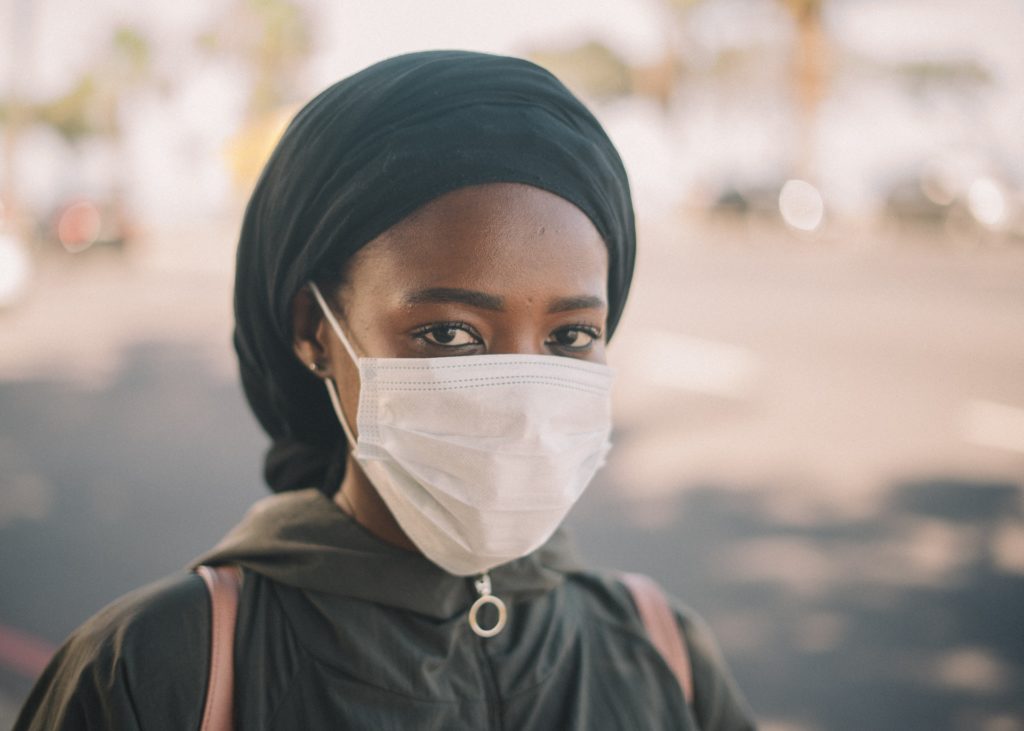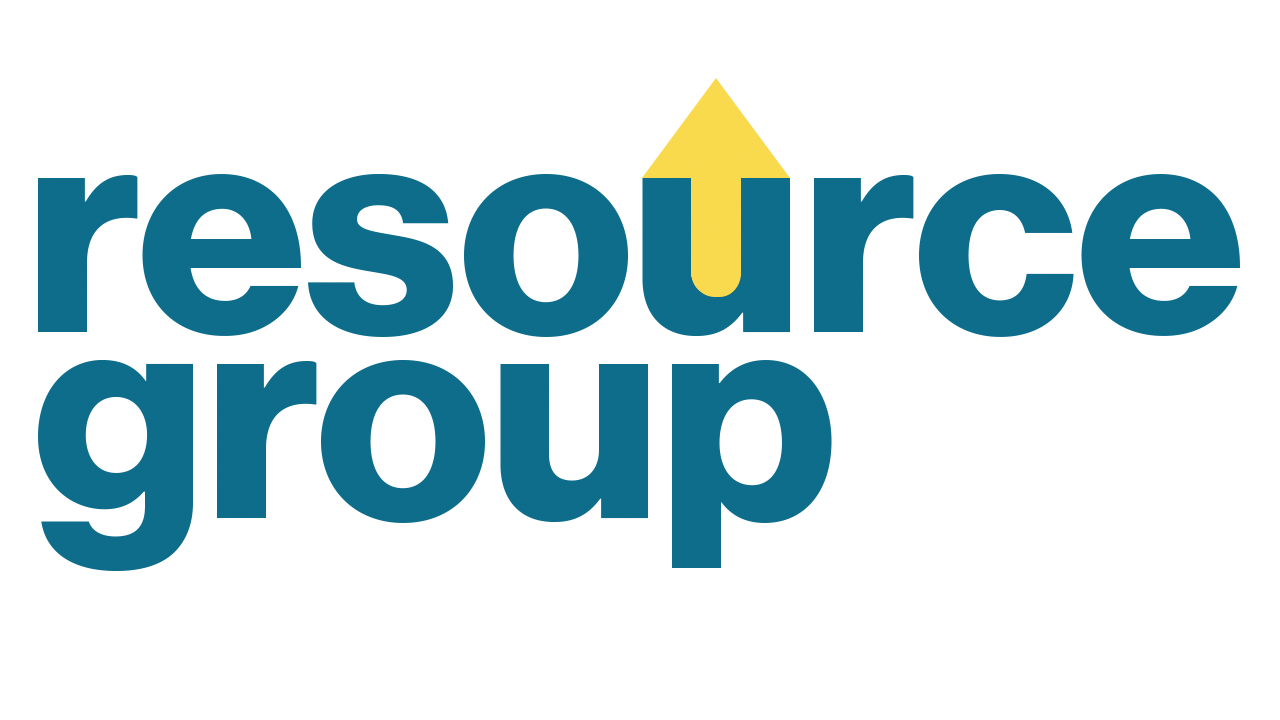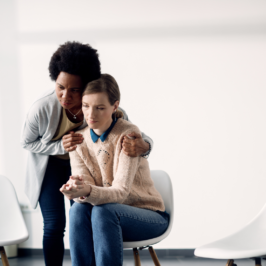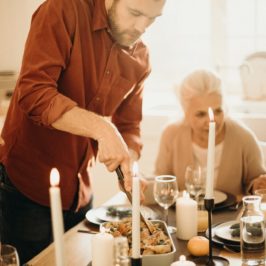
By: The Resource Group Team
COVID-19 has played a serious role in changing everything we know about the world, and that change has been seen deep in the mental health field. Whether you believe the change is good or bad, I’m sure you’re dealing with anxiety around it. We get why. There are so many aspects of the Pandemic to fear. Can I get it? Do I have it? What if I give it to my family? And that is all just with the virus itself. What about the other aspects of life it changes? Jobs, school, trips. Then you have the isolation (quarantine) and it’s effects on the loneliness we all experience at times. This can intensify anxiety; it has in me. Which is why it is important to remember that you are not alone in this. We are all dealing with a pandemic- something none of us have experienced the likes of before. That is unless you were alive in 1918.
That is why I spoke with Shane Kelsey, a Licensed Professional Counselor with Resource Group. For more than 10 years, Kelsey has helped patients deal with stress and anxiety. Months after COVID-19 has brought the world to a halt, we’re still seeing the toll it has taken on those struggling with stress and anxiety. So, who better to talk to about stress and anxiety than a person who has worked with helping those with anxiety for 10 years!
“We’ve definitely seen a rise in patients reaching out for stress or anxiety related assistance,” Kelsey says. “This prolonged exposure to anxiety can and does have devastating effects. We’re using treatment plans that can help patients deal with this heavier than usual weight of the world as it continues to change and evolve.”
Kelsey also pointed out not all change is a bad thing; some change is good.
For example, change can create opportunity. This “pause” in life has given individuals time to dedicate to matters that are important but often overlooked when the world is still in a hustle and bustle, like the Black Lives Matter movement. So many people would not have been able to take part if the world was still 100% open. Many people can spend more time with their family, and yes, I know there are many who do not have a family to spend time with and are quarantining alone. I know all too well that this can be a trigger for anxiety and stress. Yet, trying to see the positive change that has come of the pandemic can help those struggling with mental health.
To deal with stress and anxiety, there are several small changes in your own life you can make, even when it feels like everything is completely outside of your control:
- Change your location. Something this simple can help decrease feelings of anxiety. We don’t necessarily mean like buying a house or moving into a new apartment, but more like changing your everyday scenery. Take a walk or hike (with a mask and some hand sanitizer, of course), go for a drive or bike ride.
- Changing your physical responses can help lower the feeling of anxiety, too. Increase or lower the temperature inside your home. Splash cold water on your face when you feel overwhelmed. These tactics alter your physical state and response to stress, making it easier to mentally manage your anxiety.
- Get creative. Listen to new music or turn to music that brings you comfort. Look at art or try your hand at making art (don’t worry, you don’t need to share it with anyone). Changing your inputs can help.
- Limit your media intake. Or be mindful from where you intake media. Not all media does a good job of thorough, accurate reporting, so make sure the media you consume isn’t false or sensationalized.
It’s also important to keep in mind that too much change can make you feel unbalanced, so stick to a routine that feels productive and grounding.
People who were used to being busy suddenly found themselves thrown from their usual schedule and with nothing to do. Reframing a new routine can help regain some balance in your life, but then the next thing you’ll need to ask yourself is: was being busy a coping mechanism for not dealing with my feelings, and how will it affect me when things return to normal?
You’re not alone.
According to Kelsey, this is a factor that many people are worried about. “Patients don’t know how to deal with being in their own heads for this long, which is why they always tried to stay busy. So, people who weren’t used to confronting their emotions are now staring at their feelings in a way they never have before. Being alone with your thoughts can be a scary thing and it only serves to increase the uncertainty.”
And judging yourself about having those emotions can be harmful. Thinking of something being done to you as opposed to something that is happening, takes away your choice in the matter. No matter what’s going on, even amidst a global crisis, there is always a choice and always something you can do to not feel helpless.
There are opportunities you can take now, that you may not have been able to take before. You can adopt that dog you always wanted to but couldn’t because you’d always be at work. You can take more time to volunteer- one big help would be grocery shopping for the elderly who are at a higher risk of contracting COVID if they leave their home. It may feel like a hopeless time right now, but you can take some control and ease that stress and anxiety. And I personally think a dog is a great help in the stress relief department.
Here are some other things you can do during quarantine:
- Donate to a food bank. There are many right now who are in need of food and donating what you can will help those in need.
- Support local businesses hit hard by the pandemic. Many restaurants and retailers had to close for weeks to months while we figured out safety guidelines. Now that they are open again, take time to order in or online shop for those perfect shoes!
- Write messages of encouragement to people on the front lines (nurses, retail workers, garbage collectors, mail carriers ect.). They are just as anxious as everyone else and are risking their health to go out and make sure we have what we need in our ever day life. Knowing that they are appreciated can help relief their anxiety, even for just a second.
- If you can sew, make face masks, and donate them. Not everyone can afford to buy themselves a face mask. Donate to a local shelter or foster home!
- Give blood if you can. More now than ever it is important to donate blood. The virus has made many unable to donate. So, if you have not contracted the virus please consider donating.
- Connect with nature. A way to get out of the house and still safely social distance is to go on nature walks!
- Create art, listen to music and exercise. We already stated this one, but I think it is an important one to iterate. I recently started painting during the first few months of quarantine and found it helped relieve so much anxiety. I could just fall into the rhythm of the brush strokes.
- Help set up technology for those who can’t leave home. So many people are working from home and so many kids are distance learning. Not everyone is good with technology. If you are offer your skills for free or cheap so families can be more at ease during these stressful times.
- Make a list of people you’ve been meaning to catch up with and call them. What a great time to reconnect!
- Share information responsibly, and support those who create good information. Please, please, please make sure you are fact checking all of the information you share. Sharing false or half true information can create more panic or even worse disbelief.
Language is a powerful tool and certain language can trick your mind into thinking something that’s not true:
“The word ‘should’ creates a mandate on your behaviors. Telling yourself that you should do something or that you should feel a certain way puts you in a place where feelings become facts, which they are not,” Kelsey says. “When feelings are facts, they become a more distressing part of your life because they have more control. However, if you can take your mindset and approach life as saying there are things you could do, then it allows you to be in more control. When you are experiencing a thing like a pandemic it is easy to feel helpless. ‘Could’ language can help remind you that you always have choices.”
Remember, it is okay to not be okay. Take time for yourself. Give yourself a spa day, take long walks, read a book, eat some cake! Whatever makes you happy, do it! We all need to remember that this is an unusual time and doing what we can to make it a little more bearable is okay. Everyone needs self-care. Find it, embrace it, and work it!
There are resources to help you build better mental health. All you have to do is pick up the tools and start doing the work. Head over to our website to find resources, and a program that is right for you!
Now take some you time and remember to stay six feet apart!
DISCLAIMER
The information, including but not limited to, text, graphics, images and other material contained on this website are for informational purposes only. No material on this site is intended to be a substitute for professional medical advice, diagnosis, or treatment. Always seek the advice of your physician or other qualified healthcare provider with any questions you may have regarding a medical condition or treatment and before undertaking a new health care regimen, and never disregard professional medical advice or delay in seeking it because of something you have read on this website.






